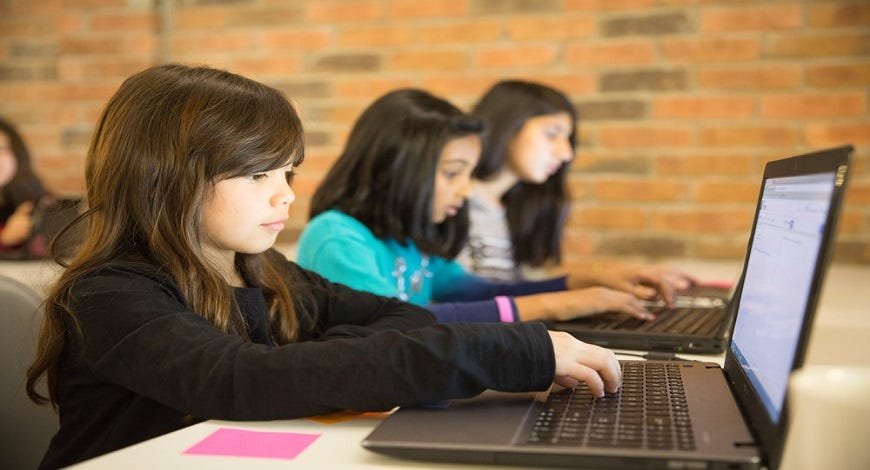
By Dr Joachim Timlon, Assistant Professor of Strategy and International Business and Lei Zhu, PhD student, Department of Management, Birmingham Business School.
AI integrated education is not just a future possibility, but a factor fundamentally transforming education. It not only makes learning more dynamic, but also hyper-personalised by using smart algorithms that understand each student’s needs and preferences precisely and predicting how students learn, so teachers can intervene early to assist them. It completely changes how students are learning and teachers are teaching. AI is re-shaping education.
BBC Education delivers the BBC’s public purpose to promote education, central to fulfilling the corporation’s mission to inform, educate and entertain. The flagship website is BBC Bitesize, which provides educationally approved, curriculum relevant self-study and home-learning to support British students aged between 5-16 years old with their educational needs outside the classroom, at home and on the go. By welcoming 2.5 million unique browsers on average each week during term time, with 80% logging on, it was rated most useful, and the top resource used by GCSE students in the last school year.
However, the broadcaster is struggling to attract younger audiences. Its reach among 16- to 34-year-olds had slipped from 81% using any BBC service in a normal week to 76% over the course of a year. The figure was worse for the under-16s, with 72% using BBC services in an average week, well behind YouTube.
To make the education services more attractive, The BBC has plans for a new £6m investment in BBC Bitesize. The investment aims to ‘Transform lives through Education’ by supporting teachers with world class, curriculum linked content for use in the classroom (BBC Teach), help students with language acquisition (Tiny Happy People), and education campaigns that address society or educational deficits (such as Ten Pieces, Super Movers and BBC micro;bit).
To find out what students value in online learning, McKinsey have surveyed more than 30 institutions, followed the learning journey of 29 students, and two of the largest online educators in the world with more than three million students.
The study showed that successful early adopters of online education using educational technology to deliver online education services apply three principles to engage most effectively with students online: create a seamless journey for students, adapt an engaging approach to teaching, and build a caring network.
Create a seamless journey for students: Since 2016, school video resources have been available on BBC Teach and Live Lessons and allow students and teachers to participate in real time sessions. The investment in Bitesize aims is to make learning more personalised and interactive for students from primary school onwards by transforming it from a digital textbook to a much more personalised leaning platform. It should make it fit for the digital age, so the learning adapts to the user.
While this is a promising aim, the performance of early adopters of online education points to the importance of actively helping students building their own education road map, for instance by using standardised tests, digital alerts, and time-management tools to regularly reinforce students’ progress and remind them of their goals. The seamless journey for students on easily navigable learning platforms should be accessible from any device, and content that is engaging, and whenever possible personalized, for instance, with a single sign on through which they can interact with instructors, classmates, and gain access to critical support services, such as libraries and financial-aid offices.
Adopt an engaging approach to teaching: The BBC will proactively deploy AI on their own terms to create tools that helped it build relevance. It will be using AI-powered learning tools such as Duolingo to better use its vast database of educational content. New tools under development using unique ethical algorithms are likely to provide personalised testing and identify learning needs, and users are also likely to find suggestions for follow-on content to deepen understanding of a subject.
This pairing of the “right” course content with the “right” format to capture students’ attention is a good practice also found among early adopters of online education. However, it requires the offering of a range of learning formats, not only one single. Early adopters incorporate group activities and collaboration with classmates, which are important hallmarks of the education experience, into their mix of course formats, offering both live classes, self-guided, and on-demand lessons.
Create a caring network: BBC Bitesize played an important role during Covid-19 lockdowns when schools across the UK were forced to shut their campuses in the spring of 2020 and rapidly shift to online instruction. AI provides The BBC the opportunity to provide digital assistance as well as human support. Many successful early adopters provide timely support and help students build strong communities by combining automation, and analytics with one-on-one personal interactions, for instance, alerts and communication nudges when the learning platform detects low student engagement, and matching students in distress with personal coaches and tutors who can follow the students’ progress and provide regular check-ins. Meanwhile, AI-powered chatbots provide quick responses to common student requests and questions and can be accessible from every page of the school’s online campus website and offers 24/7administrative support to students. This helps students to not feel alone in their learning journey, but instead being part of an academic community where they are able to make friends online and build strong communities.
The question is no longer whether AI will also be used in education but how to responsibly use AI to create value in education. BBC Education can take a cue from the early adopters of online education that have been refining their online teaching models for more than a decade and rethink their online strategies for delivering education.
- Find out more about Dr Joachim Timlon
- Back to Social Sciences Birmingham
The views and opinions expressed in this article are those of the author and do not necessarily reflect the official policy or position of the University of Birmingham.
